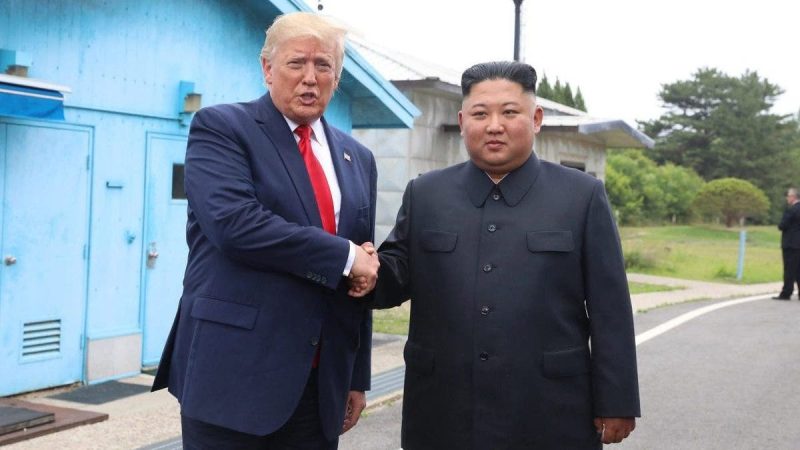President Trump’s stance on maintaining a friendly relationship with North Korean leader Kim Jong Un has sparked debates among politicians, analysts, and the public. Despite criticism from some quarters, Trump continues to push for diplomacy and a peaceful approach to dealing with North Korea. Several factors can be identified to support Trump’s perspective on the matter.
A key argument in favor of a friendly relationship with Kim Jong Un is the potential for peace and stability in the region. Historically, North Korea and the United States have been engaged in hostility and aggression towards each other. By establishing a friendly rapport with Kim Jong Un, Trump hopes to ease tensions and pave the way for more constructive dialogue. This approach aligns with the broader goal of achieving denuclearization and ensuring regional security.
Moreover, maintaining a friendly relationship with North Korea allows for greater diplomatic flexibility. By keeping communication channels open and engaging in dialogue with Kim Jong Un, Trump can influence North Korea’s decision-making process and potentially shape its policies. This direct engagement may provide an opportunity for the United States to address key issues such as human rights abuses, nuclear proliferation, and regional stability.
Critics of Trump’s approach argue that a friendly relationship with Kim Jong Un legitimizes and emboldens a repressive regime. They contend that engaging with North Korea on a personal level may downplay the severity of its human rights abuses and undermine efforts to hold the regime accountable for its actions. However, Trump’s administration asserts that maintaining communication does not equate to endorsing North Korea’s behavior but rather creates an opportunity for constructive engagement.
Furthermore, a friendly relationship with Kim Jong Un presents an opportunity for the United States to leverage North Korea’s position in geopolitical dynamics. By fostering a positive rapport with North Korea, Trump can potentially gain insights into the regime’s intentions, motivations, and strategic objectives. This knowledge is crucial for shaping U.S. foreign policy, managing regional alliances, and addressing security challenges effectively.
In conclusion, while Trump’s approach to cultivating a friendly relationship with Kim Jong Un may be contentious, it aligns with broader diplomatic objectives of promoting peace, stability, and security in the Korean Peninsula and beyond. By engaging with North Korea at a personal level, the United States can potentially influence the regime’s behavior, address key concerns, and navigate complex geopolitical dynamics more effectively. Ultimately, the success of this approach will depend on continued dialogue, mutual understanding, and a commitment to pursuing shared interests for the benefit of both nations and the region as a whole.

